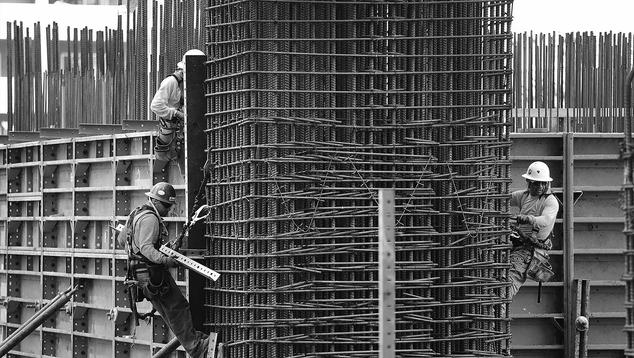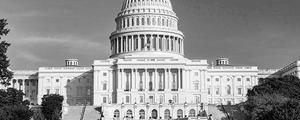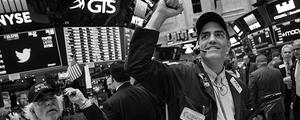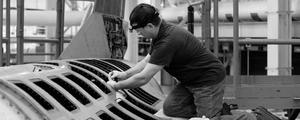Story Highlights
- Economic Confidence Index at +33
- November 2000 was the last time economic confidence was higher
- 68% say it is a good time to find a quality job, tied for the high
WASHINGTON, D.C. -- Americans' evaluations of current U.S. economic conditions and the economy's trajectory have not been more upbeat since 2000. Currently, 54% of Americans rate economic conditions as "excellent" or "good," and just 12% as "poor." Also, by 57% to 34%, more Americans say the economy is getting better than say it is getting worse.
The combination of those answers results in a Gallup Economic Confidence Index of +33. The index was last at that level in January 2004, and has not been higher since November 2000 (+39), at the tail end of the dot-com boom.
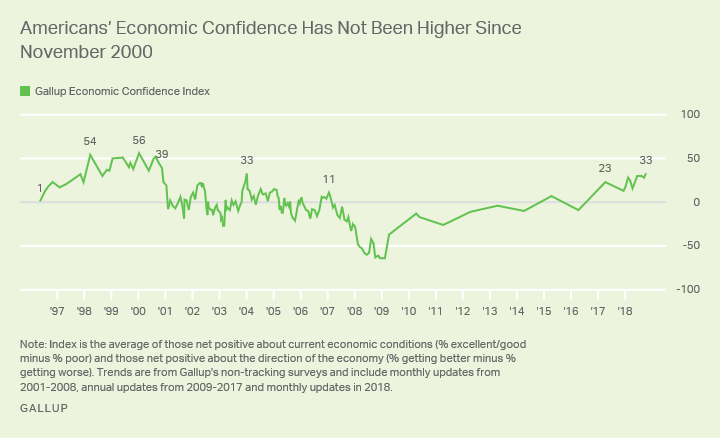
The latest results are based on an Oct. 1-10 survey. Since then, however, the stock market has been volatile, which could negatively affect consumer attitudes. Any effect of the stock market volatility that began Oct. 10 would not be fully reflected in these results.
Gallup first asked Americans to assess the state of the economy using its current conditions and economic outlook questions in 1992, and has done so on a regular basis since 1996. The questions were asked at least monthly between October 2000 and December 2008, and on Gallup's annual April economic survey between 2009 and 2017. In December 2017, Gallup resumed asking them monthly.
Gallup asked the same questions on daily tracking surveys between 2008 and 2017. While the tracking and non-tracking survey estimates did not always match, they were usually within 10 points of each other. Because economic confidence was depressed throughout those years, it is safe to conclude that the current level of confidence has not been higher in any Gallup polling on the topic since 2000.
Today's robust confidence numbers are still well below the high in Gallup's trend, a +56 confidence index rating in January 2000, at a time of then-record stock values, low unemployment and strong economic growth. That month, 71% of Americans rated current economic conditions as excellent or good, while just 5% rated them as poor. Also, 69% thought the economy was getting better and 23% worse.
Job Market Ratings Return to Record Levels
The Oct. 1-10 poll finds similarly positive ratings of the U.S. job market. Sixty-eight percent of U.S. adults say it is a good time to find a quality job, tying July's measure as the highest in Gallup's trend dating back to August 2001. The quality job trend has been asked each month since October 2001. Not until January 2007 did a majority of Americans rate the job market positively on this measure. In September 2017, perceptions that it was a good time to find a quality job surpassed 60% for the first time, and that figure has been at 62% or higher since February.
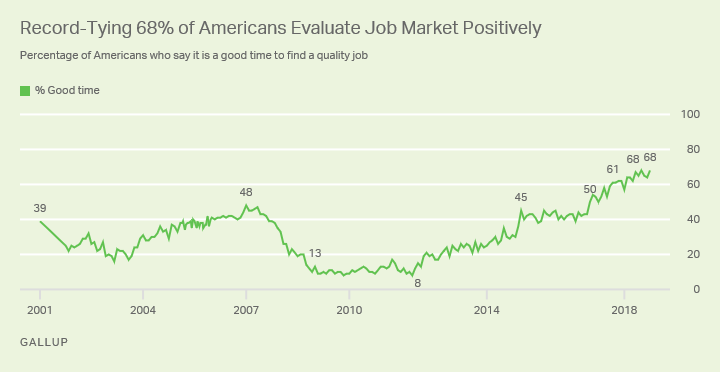
Previously, Gallup showed a strong relationship between the U.S. unemployment rate and the percentage saying it was a good time to find a quality job. On Oct. 5, while the latest survey was in the field, the Bureau of Labor Statistics announced that unemployment had dropped to a 49-year low of 3.7%.
In contrast, when the unemployment rate was high in late 2009 and early 2010, perceptions that it was a good time to find a quality job sunk to as low as 8% in November 2009.
Implications
Ten years after the Great Recession rocked the U.S., Americans' confidence in the economy has returned to levels not surpassed since the dot-com boom. Economic confidence began to improve in President Barack Obama's second term and has expanded further during Donald Trump's presidency, as unemployment continues to decline, the economy shows sustained growth and stock values set new records.
Trump and the Republican majority in Congress are hoping the strong economy will help the party hold onto its power in the midterm elections. However, with Trump's overall job approval stuck in the 40s and his economic approval rating not much better, it does not appear he is getting much credit from the public for the state of the economy. By comparison, when economic evaluations were last as positive as now, George W. Bush had a 60% job approval rating (January 2004) and Bill Clinton had a 63% approval rating (November 2000).
Renewed stock market volatility, higher interest rates, an expanding federal budget deficit and U.S. trade disagreements with other countries all represent threats to the strong economy and consumer confidence. However, those factors have not stopped the positive economic momentum to date -- and until the economy begins to show signs of weakening, Americans will likely continue to express confidence in the economy.
View complete question responses and trends.
Learn more about how the Gallup Poll Social Series works.
